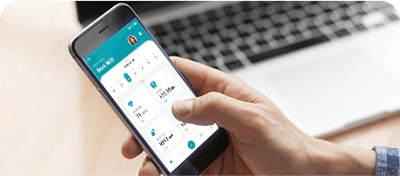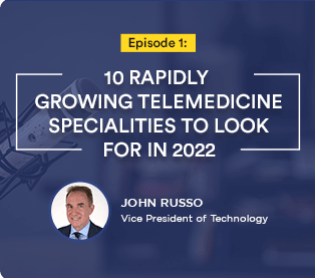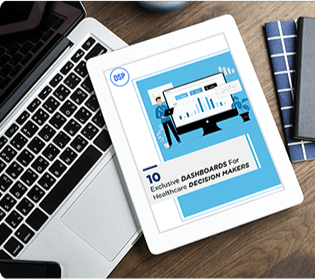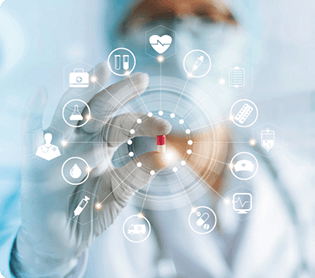Introduction:
Healthcare management’s success depends on many aspects- care delivery, staff satisfaction, revenue growth, and more. However, revenue is an essential subject that providers are quite concerned about. And a lot depends on the hospital billing system. It’s the providers’ job to deliver care to patients. So, health IT developers have created medical billing software to make the billing process easier.
Billing systems in a hospital or the medical billing software automate the manual task of billing to ensure faster payment. This benefits providers by making the processing faster, improving workflow, and tracking patient information. Implementing a billing system in hospitals will boost its revenue too.
At OSP, we were approached by a California-based client who managed dental clinics’ payment systems. The client company wanted to implement an automated HIPAA compliant solution that providers and payers could use across the care settings to manage dental patients and payments. The main challenge that the client faced was to implement automated billing workflow software to manage their claims and reimbursements. So, we devised these solutions for this client-
- Fully Automated Claims Cycle- Automation in billing and claim management process
- Designated User Models- With strict HIPAA compliance, focus on individual roles
- CMS coding automation- Accurate coding and uniform billing tracking
- Intelligent Analytics- Managing billing data workflow and denied claims
- Unpaid bill ratio- Decrease in unpaid bills
So, if you want to implement a billing system in a hospital, then here’s the complete guide on hospital billing system 2023.
Key Requirements to Successfully Implement Hospital Billing Software in 2023

In today’s practice management, big issues are revenue losses, claims denials, billing, and coding errors. However, healthcare automation solutions are transforming these problems in the medical practice. Similarly, medical billing software also changes billing dynamics in the hospital management system. A successful billing system in a hospital must have a few essential requirements.
1. Patients’ Pre-Registration and Check-in
A hospital billing system must get the patients onboard first. Pre-registration is the first step to initiating the medical billing process. Patients’ information is essential for the appointment and further payments. Moreover, hospital management needs to check patients’ eligibility for insurance and other Medicaid benefits. So, patient pre-registration is instrumental in the billing process and patient satisfaction. Besides, the medical billing system must include pins for patient check-in forms, eligibility options, medical benefits, and patient payment history. Moreover, providers trying to implement billing systems in hospitals can opt for customized medical billing software as needed. Healthcare Providers can also integrate electronic health records with the hospital billing software to manage the patient history and other details.
2. Verify Insurance
Healthcare providers must ensure its billing system in hospitals verifies patients’ insurance. Every time the patient books an appointment in the hospital, the insurance needs verification. Checking the insurance status is important for easy and fast processing of claims or reimbursements. So, providers must double-check before initiating the billing process. Also, patients with medical benefits need verification of their status and insurance coverage. It’s just to ensure that all insurance and medical benefits information and coverage are up-to-date. Providers can boost their verification process through integrated healthcare solutions.
3. Medical Transcription
Medical transcription is required in the hospital billing software after the patient-clinician consultation. It’s the work of qualified professionals to listen and analyze the diagnostic documents to prepare a medical script. Eventually, this medical script is used for further consultation and medical billing. So, clinicians and medical transcription professionals need to ensure its error-free to facilitate faster bill processing. Providers can also resort to healthcare analytics solutions to improve the medical script.
4. Medical Coding
Every medical bill must follow specific medical information codes. Professional coders use different codes to define the reason of visits, type of disease, potential treatment plan, and place of service delivery. All this information in specific codes makes it easier to understand in the bill.
5. Claims Management
The billing system in hospitals must address the requirement of claims management. Organizing, filing, and processing medical claims of patients’ care episodes. And providers can only simplify this process by automating claims management. Moreover, providers can even use effective medical informatics or cloud computing solutions to manage claims denials.
6. Billing & Collection
It’s a long process, from appointment scheduling to payment receiving. And medical billing and collection is an essential requirement in medical billing solutions. Providers need to send out invoices to insurance and patients for payments for this. It must include functionalities such as patient statements, bill generations, soft collection letters, bill recording, automated billing, and more.
7. Patient Information
A healthcare billing software requires accurate and centralized access to patient information. Patients and insurance providers having patient information will impact the billing process. Moreover, accessing patient information through a centralized interface can also be used for population health management and patient engagement systems. Further, integrating EHR with the medical billing system will also optimize medical records management.
8. Workflow Management
Todays’ medical billing software must meet workflow management requirements. Loads of administrative billing and coding till payment processing, providers have an array of tasks. This workflow management function in the hospital billing software will speed up the process with accuracy and optimize staff workflow. Moreover, providers need to ensure proper electronic data exchange in workflow management to maintain accuracy.
9. Compliance
Of all the requirements, a billing system in hospitals must have regulatory compliance. It assures the users of the safety and security of the patient information. The data in the medical billing system need security, and HIPAA compliance is the best way to protect the software and patient data.
10. Payment Collection
Payment collection is the last and most important function of medical billing management. The complete billing process ends with insurance and individuals paying the claim. Either traditional payment or electronic transfer is the two possible payment processes. However, bulk payment must accompany an EOB, and providers need to update it in the hospital EHR system.
Challenges in Hospital Billing
Medical billing can be quite taxing, and hospitals often struggle due to many roadblocks. According to some reports, nearly 50% of primary care centers are tired of billing procedure updates and making changes. Despite these issues, several providers are still reluctant to adopt robust hospital billing software. And here are some of the challenges in medical billing that can be resolved effectively using billing software.
1. Multiple Claims Issues
Filing multiple claims can be exhausting for providers and hospital resources. And this often leads to delays in claims processing, errors, and even difficulty tracking the status of individual claims. Multiple claims mean a large volume of data, and the inability to manage such a huge amount of claims can negatively impact the financial status of hospitals. Besides, filing multiple claims means handling different payers with their interests, deadlines, and processes. And this complicates the billing process and even the work pressure on the staff
2. Growing Demands for Information
Since the Covid pandemic, several insurance companies have increased their demand for patient information. Payers have updated their standards; they now want more detailed information about a patient’s condition and treatment procedures. And with such increased demand for information, billers and coders are bound to slow down the claims processes. Moreover, they predict a higher risk of errors and inaccuracies. And all these will ultimately impact the claims process.
3. Errors in Coding
While Computer Assisted Coding is quite a trend, these days but human coders still hold a significant population in the current healthcare ecosystem. And human coders mean higher chances of errors such as typos that will lead to claims denials and loss of payment.
4. Quality Training Requirements
In medical billing and coding processes, the staff requires quality training to understand multiple systems that function with billing. The staff must know systems like EHR and EMR to efficiently access patient information. Besides, billers and coders must renew their credentials from time to time. And the renewing process will also help them stay up-to-date about the new regulations.
5. Laws Related to Confidentiality
Privacy in medical billing is of utmost priority. So, laws and regulations related to maintaining the confidentiality of billing, such as HIPAA, must be followed strictly. However, these laws are subjected to frequent updates and changes, which are often difficult to track. And this can negatively impact the claims process and cause additional losses, too, due to penalties.
6. Technological Advancements
The emergence of new technology in billing and coding, such as CAC, can scan clinical records and determine the codes. Hospitals tend to keep programmers as staff to observe the new technology CAC’s functionality and accuracy. And this is time-consuming for staff to acquire such a keen eye for observing accuracies.
Benefits of Hospital Billing Software in 2023

Billing systems in healthcare with personalized features and requirements simplify and speed up the billing to the payment process. Moreover, providers receive many benefits from using this medical billing software.
1. Enables easy access to patient records
Healthcare billing systems have up-to-date patient information, including medication and insurance status. And such medical billing system grants patients and insurance providers easy access to this information. Moreover, providers integrating this billing system with EHR will boost their healthcare interoperability too. With easy access to patient information, hospitals can speed up the payment processes without hindering data privacy. Besides, hospital billing systems integrated with EHRs can improve interoperability and guarantee the data’s accuracy.
2. Streamlined Workflow
As one of the main requirements of a hospital billing software, providers’ workflow is streamlined. Every task, from pre-registration to payment collection, the medical billing solutions streamlines the complete staff workflow. Hospital staff finds it exhausting to handle these tasks manually. Of course, these are burdensome for them, considering the number of administrative work pressures. But with hospital billing software taking off the workload by streamlining each process, they can finally pay more attention to patient care. And as billing solutions for hospitals streamline workflows, the processes consume a limited amount of time, and the payment cycle is completed much faster.
3. Reduced administrative expenses
Manual billing and processing add up administrative expenses of providers. However, providers can save a lot on administrative tasks with medical billing systems by automating them. Medical billing systems can minimize administrative expenses owing to their errorless processing. Billing and coding errors are the primary reasons for increasing costs. Moreover, the paper-based manual method used typically costs a lot too. But with automated billing solutions, these expenses are reduced drastically and increased providers’ savings too.
4. Minimized errors and loss of payments
Medical billing software minimizes errors by pre-populating the patient and insurance information, which reduces the chances of data entry errors. Besides, this software also identifies inaccuracies and inconsistencies in billing information, such as coding or wrong billing codes. Moreover, the software submits claims electronically, removing the risks of claims getting lost or delayed in the mail. Providers need not stress about data errors and loss of payments with hospital billing systems. Automated billing solutions minimized errors and optimized the payment process. And eventually, providers’ revenue also increases by reducing the chances of lost payments.
5. Improved claims tracking
Hospital billing solutions streamlines claim tracking and processing. It’s one of the essential requirements of the software. It ensures the claims are error-free to facilitate the processing. Hospital billing software solutions enhance claims tracking by providing an organized and centralized system for claims management. The software can automate claims generation and submission to specific insurance companies. And it can even track their status in real-time. Moreover, the software empowers the providers to rapidly identify and resolve issues related to claims- be it denial or delays. The software also has alerts and notification features that enable providers to understand whether the issue is denied, unpaid, or delayed claims. With such comprehensive details, healthcare billing software enables providers to stay on top of their claims and get paid faster.
6. Improvement in patient care
Medical billing solutions simplifying the payment process indirectly boost patient care and experience. It also improves patient engagement systems. As hospital billing software solutions streamline and automate processes, it indirectly improves patient care. Moreover, this software reduces the time required to process claims and other billing-related tasks, freeing up staff so that they focus more on patient care. And this aspect also keeps patients free from financial stress and enables them to focus more on their health. Besides, the software’s integration with EHR improves the accuracy and efficiency of patient care. And the billing solution also includes patient portals that even allow patients to access their billing information, which is a great way to enhance the patient experience.
7.Improved Financial Reporting
Healthcare billing software solutions can improve financial reporting by providing detailed financial information in real time. It can generate accurate reports as the software tracks and records transactional information related to patient care, such as charges, payment dues, and insurance claims. Usually, these reports are income statements, cash flow statements, and balance sheets. Billing software’s capabilities include analytics and business intelligence reporting, which helps providers spot key areas of improvement and opportunities. It also efficiently identifies profitable services and payers alongside closely monitoring financial performance to pick out areas of practice where cost savings can be done. All-in-all, implementing a hospital billing solution oversees the financial performance and guarantees accurate financial reports to ensure effective actions
8.Streamlined Coding
Typically, medical billing software has in-built coding libraries that include up-to-date codes. And when the software provides pre-filled forms with patient and insurance information, the codes are also automatically fed into the claims forms. The presence of up-to-date code libraries reduces coding errors and even ensures compliance with coding regulations. Besides, the solution automatically checks and alerts the staff in case of inaccuracies. So, with correct codes and strict compliance with coding regulations, the billing software promises hassle-free, accurate coding leading to faster claims submissions. And errorless coding means lesser chances of denied or delayed payment flow.
Conclusion
Billing systems in hospitals have transformed over the last few decades. From a manual paper-based medical billing and coding process to complete automation, providers benefit from the hospital billing system. Moreover, if you are willing to invest in a hospital billing system, choosing a vendor that can customize the billing software per your needs is wise. You incorporate all basic requirements and functionalities to boost the providers’ billing and revenue cycle process.
OSP is a trusted healthcare software development company that delivers bespoke solutions as per your business needs. Connect with us to hire the best talents in the industry to build enterprise-grade software.
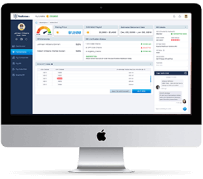
How can we help?
Fill out the short form below or call us at (888) 846-5382
Discuss Your Project Handover with a team of expert Book a free consultation arrow_forward
About Author

Written by Riken Shah linkedin
Riken's work motto is to help healthcare providers use technological advancements to make healthcare easily accessible to all stakeholders, from providers to patients. Under his leadership and guidance, OSP Labs has successfully developed over 600 customized software solutions for 200+ healthcare clients across continents.









